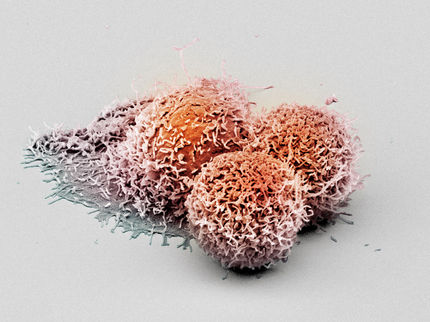New test improves detection of liver cancer
VIB researchers connected to Ghent University, in collaboration with research centers in Beijing and Shanghai in China, have developed a test to detect liver cancer in an early stage. A small blood sample is the only requirement for the test. The new test enables accurate detection of liver cancer in over 50% of the cases for which previous diagnostic tests have not been able to provide a definitive answer.
Hepatocellular carcinoma (HCC) is the most prevalent primary liver cancer. The disease most often appears following a chronic inflammation of the liver as a consequence of a hepatitis B or C virus infection or cirrhosis of the liver.
Methods of detecting malignant growths are often based on the concentration of particular 'markers' present in the blood. For the detection of HCC, only one marker (AFP) is generally used. However, this marker has a low specificity and is frequently inadequate because of false-positive results.
A new test for detecting HCC was developed by Xue-en Liu, Liesbeth Desmyter and colleagues under the supervision of Cuiying Chen (Chitty) in collaboration with scientists in China. This test is based on previous work of Prof. em. Roland Contreras and Nico Callewaert.
By examining blood concentrations in Chinese patients with cirrhosis of the liver due to a hepatitis B virus infection, they found that the quantities of two particular sugar groups that appear on the blood proteins varied according to the stage of the disease. Furthermore, these values correlated with the size of the tumor. The ratio of these values forms the basis of the new blood test. The researchers were able to make the correct diagnosis in 70% of the cases a success rate that equals that of the AFP tumor marker currently being used in the clinic.
When the AFP test is used in combination with the new test, the accuracy of HCC diagnosis rises dramatically. The new test succeeds in detecting liver cancer in more than half of the patients with cirrhosis of the liver for which the AFP test provides no answer. This test would allow frequent and non-invasive analyses to be carried out on cirrhosis patients, which would enable scientists to detect liver cancer in an earlier stage and to closely monitor the development of the disease.
At the moment, the researchers are working on implementing this test for the diagnosis of liver disease in compliance with clinical practice. The new results concerning HCC diagnosis provide an extra incentive for pursuing this development as intensively as possible.
Original publication: Xue-en Liu et al., "Detection of hepatocellular carcinoma by glycomics analysis in patients with liver cirrhosis induced by hepatitis B virus", Hepatology, 2007.
Other news from the department science

Get the life science industry in your inbox
By submitting this form you agree that LUMITOS AG will send you the newsletter(s) selected above by email. Your data will not be passed on to third parties. Your data will be stored and processed in accordance with our data protection regulations. LUMITOS may contact you by email for the purpose of advertising or market and opinion surveys. You can revoke your consent at any time without giving reasons to LUMITOS AG, Ernst-Augustin-Str. 2, 12489 Berlin, Germany or by e-mail at revoke@lumitos.com with effect for the future. In addition, each email contains a link to unsubscribe from the corresponding newsletter.




















































